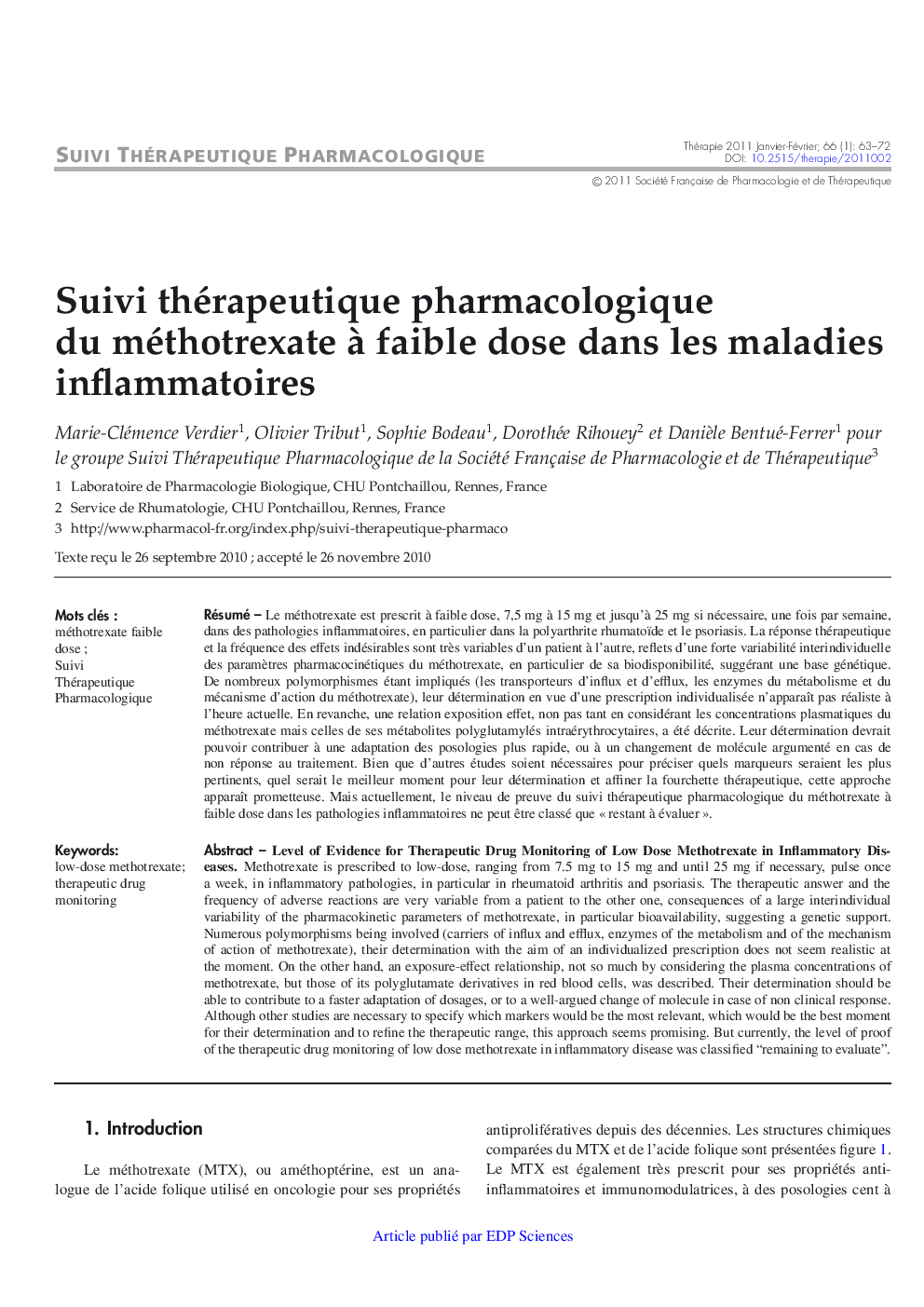| Article ID | Journal | Published Year | Pages | File Type |
|---|---|---|---|---|
| 2579230 | Thérapie | 2011 | 10 Pages |
Abstract
Methotrexate is prescribed to low-dose, ranging from 7.5 mg to 15 mg and until 25 mg if necessary, pulse once a week, in inflammatory pathologies, in particular in rheumatoid arthritis and psoriasis. The therapeutic answer and the frequency of adverse reactions are very variable from a patient to the other one, consequences of a large interindividual variability of the pharmacokinetic parameters of methotrexate, in particular bioavailability, suggesting a genetic support. Numerous polymorphisms being involved (carriers of influx and efflux, enzymes of the metabolism and of the mechanism of action of methotrexate), their determination with the aim of an individualized prescription does not seem realistic at the moment. On the other hand, an exposure-effect relationship, not so much by considering the plasma concentrations of methotrexate, but those of its polyglutamate derivatives in red blood cells, was described. Their determination should be able to contribute to a faster adaptation of dosages, or to a well-argued change of molecule in case of non clinical response. Although other studies are necessary to specify which markers would be the most relevant, which would be the best moment for their determination and to refine the therapeutic range, this approach seems promising. But currently, the level of proof of the therapeutic drug monitoring of low dose methotrexate in inflammatory disease was classified “remaining to evaluate”.
Related Topics
Health Sciences
Pharmacology, Toxicology and Pharmaceutical Science
Pharmacology, Toxicology and Pharmaceutics (General)
Authors
Marie-Clémence Verdier, Olivier Tribut, Sophie Bodeau, Dorothée Rihouey, Danièle Bentué-Ferrer,
